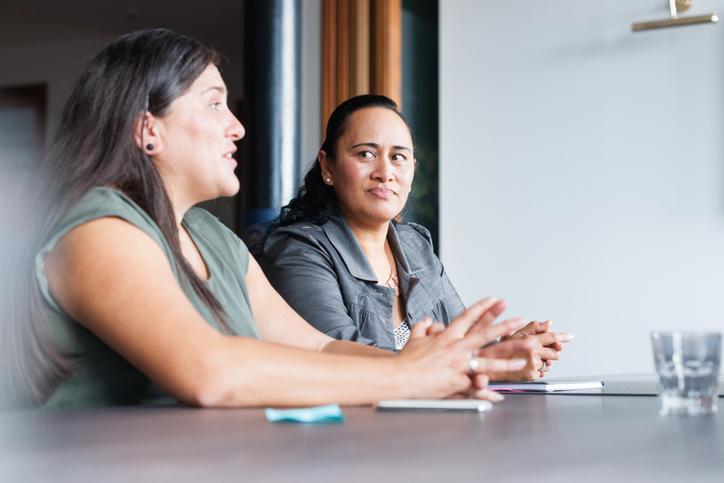
Sharpen your students’ interview skills
The employees of the future will need to showcase their skills in job interviews. Make sure they’re prepared for each setting, writes Lewis Humphreys

You may also like
Popular resources
In today’s ultra-competitive job market, strong interview skills are paramount for students taking their first steps into the professional world. University careers services play a crucial role in equipping our students with the tools and confidence needed to excel in a range of interview settings. From pre-recorded video interviews to live online sessions and traditional face-to-face meetings, students must be adaptable and well-prepared. Here, I’ll explore ways universities can teach interview skills to students and graduates, helping them to present themselves and their skills in the best light possible.
Preparing for different interview formats
Students need to be ready for many interview types, each of which requires its own preparation.
- Tried and tested ways to teach your students soft skills
- Strategies to train students in three transferable skills wanted by employers
- Career mentoring can support student employability
Pre-recorded video interviews, online interviews conducted on platforms such as Zoom, in-person interviews and assessment centres present their own challenges. Recognising the importance of addressing these diverse formats is essential in developing a comprehensive interview skills training programme.
LSE Careers’ approach to interview skills training
At the London School of Economics and Political Science (LSE), we take a proactive stance in preparing students for interviews. We offer practical support through:
- 30-minute practice interviews for students with upcoming interviews, allowing them to refine their techniques and receive constructive feedback
- specialised seminars covering a range of interview types, including strengths-based, online and intercultural communication-focused interviews, providing targeted guidance tailored to specific scenarios
- two-hour workshops throughout the academic year, where students can immerse themselves in interactive exercises designed to enhance their interview skills, focusing on real-world scenarios and practical strategies.
In addition, we keep track of where our students are interviewing to ensure we can give up-to-date information and add insights into specific sectors and organisations.
We have found that running sessions alone is not enough. To complement our online and in-person seminars and workshops, we provide students with access to digital tools and resources, including:
- CaseCoach, a platform enabling students to practice-case interviews, a common format used by consulting firms and other industries
- eCareersGrad’s Interview Success course, an engaging e-learning module that covers essential interview techniques and best practices
- ShortList.Me, where students can practise pre-recorded video interviews and receive instant feedback on their performance.
Additionally, we have a wealth of information and resources on our website, covering topics such as interview etiquette, common questions and industry-specific advice.
While online interviews are prevalent, traditional face-to-face interviews remain a cornerstone of many recruitment processes. We focus on body language, effective communication and confidence-building strategies when preparing students for in-person encounters.
Students will often encounter assessment centres as part of the recruitment process, which means tackling complex scenarios designed to test them for multiple skills simultaneously. We offer mock assessment centre sessions, run group exercise simulations, give feedback on performance and offer advice on how to manage any feelings of stress or anxiety on the day to help students prepare.
To meet the ongoing needs of our students, we started to further involve alumni and employers in our activities. For instance, this could be inviting alumni to share sector-specific interview advice in a session or having an employer present to offer the interviewer’s perspective during a panel event. These inputs ensure our educational content stays up-to-date and relevant.
We believe in learning by doing. Practical exercises such as role-playing, mock interviews and peer-to-peer feedback sessions actively involve students in their skills development. These interactive activities foster confidence and enhance interview performance.
Investing in interview skills training is an investment in students’ future success. By giving students many ways to practise their interview skills, and by offering a range of online tools, universities can empower students to navigate interviews with confidence. Comprehensive interview skills development should be an integral part of career readiness programmes.
We invite you, the reader, to explore similar initiatives at your own institution. Together, we can ensure that the next generation of graduates is well-prepared to succeed in the workplace. By embracing comprehensive interview skills training, universities can play a pivotal role in shaping the professional trajectories of our students.
Lewis Humphreys is the careers education manager at the London School of Economics and Political Science.
If you would like advice and insight from academics and university staff delivered direct to your inbox each week, sign up for the Campus newsletter.



Comments (0)
or in order to add a comment